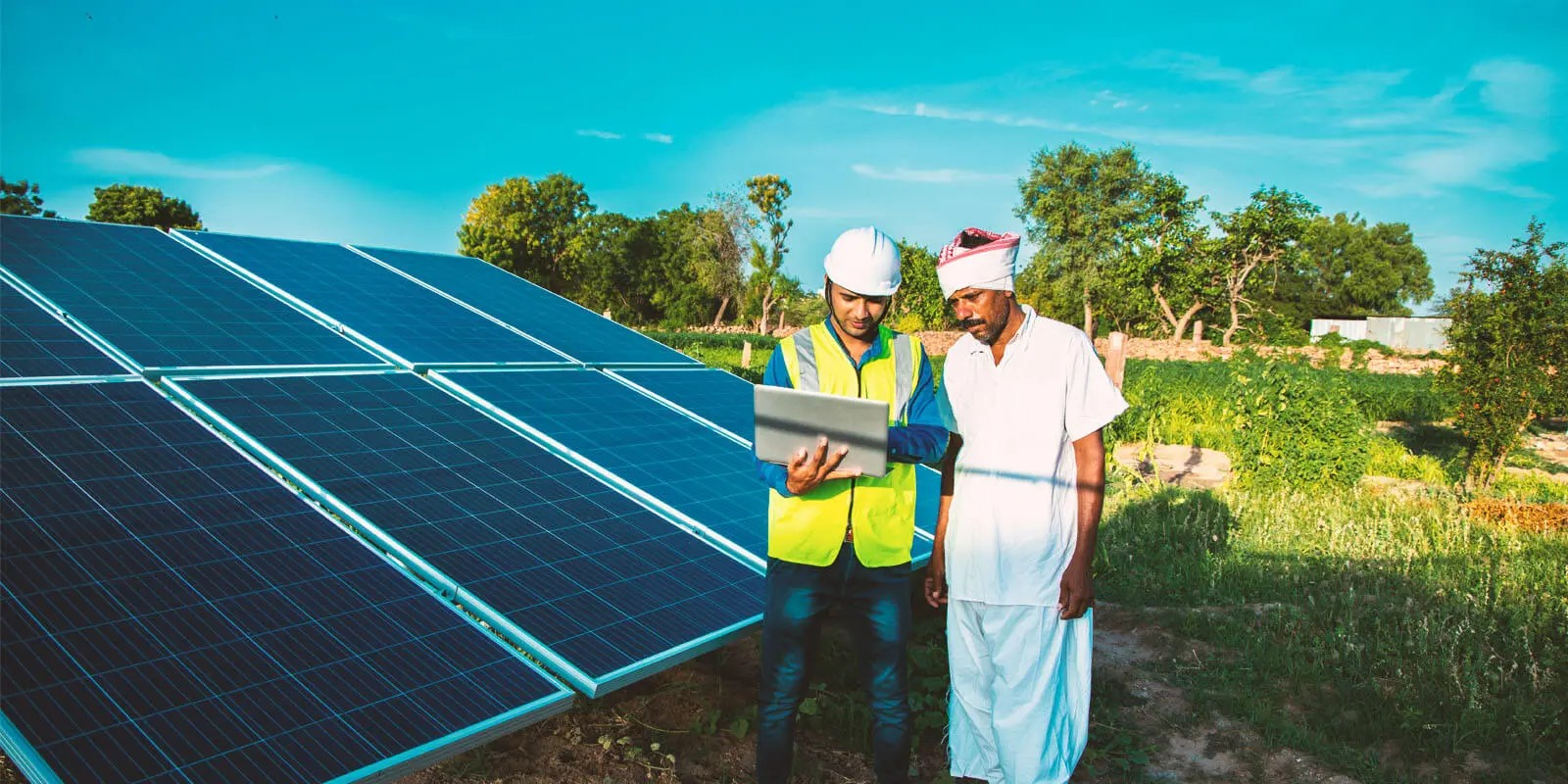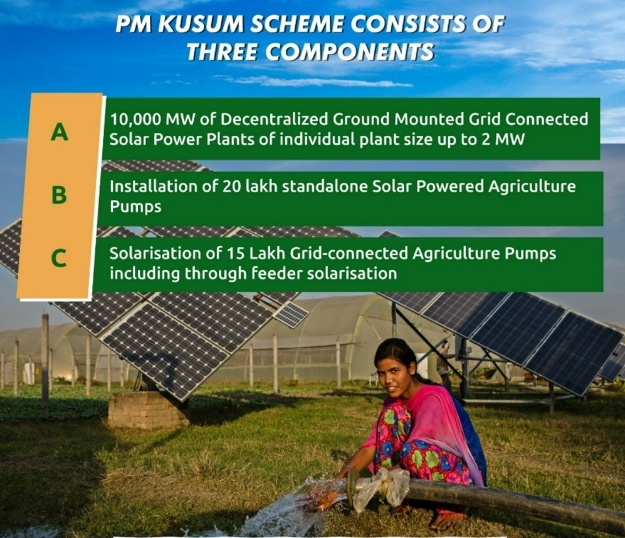Accretive Cleantech Finance Private Limited is now Ecofy Finance Private Limited
THE IMPACT OF ROOFTOP SOLAR ON INDIA'S POWER GRID: A GAME CHANGER FOR THE NATION
- Publish on Nov 16, 2024
- Read Time 5 min
India's energy transition is one of the most significant shifts the nation has undertaken in recent decades. With a growing population, rapid urbanization, and increasing demand for electricity, India's power grid faces numerous challenges. Amid these concerns, rooftop solar has emerged as a transformative solution, not only enabling citizens to become active contributors to energy production but also strengthening and stabilizing the country's power grid. The impact of rooftop solar on India's power grid has the potential to be a game-changer in achieving energy security and sustainability.

Rooftop Solar: A Key Player in India's Energy Transition
India has set ambitious goals for renewable energy development, with a target to achieve 500 GW of non-fossil fuel energy capacity by 2030. Solar energy, being one of the most abundant and easily accessible renewable sources, plays a crucial role in this transition. Among various forms of solar installations, rooftop solar has gained considerable attention due to its potential for decentralized power generation.
Rooftop solar involves the installation of solar panels on residential, commercial, and industrial buildings, generating electricity locally. This decentralized form of power generation has several advantages, including reduced transmission losses, lower electricity costs, and enhanced energy security. Importantly, rooftop solar can contribute to India's energy transition by diversifying the country's energy mix and reducing its reliance on fossil fuels.
Strengthening the National Power Grid
One of the most significant benefits of rooftop solar is its potential to strengthen India's power grid. Traditionally, India's power grid relies on centralized generation plants—large coal, gas, and hydroelectric power stations that transmit electricity over long distances to reach consumers. This system is prone to inefficiencies due to transmission and distribution losses, which can be as high as 20-25% in certain regions.
Rooftop solar can mitigate these issues by decentralizing power production. With more homes and businesses generating their own electricity, the demand on the national grid decreases, and the need for long-distance transmission is minimized. This helps reduce transmission losses and ensures a more stable and resilient grid. The reduction in peak load demand also alleviates pressure on the grid, especially during high-demand periods such as hot summer days.
Moreover, when rooftop solar installations are connected to the grid, they contribute to grid stability. Excess solar energy generated during the day can be fed back into the grid, providing a valuable source of electricity during non-sunny hours or periods of high demand. This makes the power grid more flexible and responsive, allowing for better load management.
Rooftop Solar and the Shift Toward Energy Independence
As India moves toward energy independence, rooftop solar plays a critical role in reducing the country's dependence on imported fossil fuels. In fiscal year 2020-2021, India imported over 80% of its crude oil requirements, making energy security a growing concern. By promoting rooftop solar energy, India can harness its own renewable resources, reducing its reliance on external sources of energy.
Rooftop solar also encourages local energy production, which can reduce grid congestion and energy transmission bottlenecks. By diversifying the energy mix and generating electricity closer to the point of consumption, rooftop solar can significantly reduce India's vulnerability to global energy price fluctuations and supply chain disruptions.
Economic and Environmental Benefits
The impact of rooftop solar extends beyond the power grid; it also
contributes to the broader economic and environmental goals of the nation.
Rooftop solar helps India reduce its carbon footprint. The electricity
generated from rooftop solar panels is clean and renewable, reducing the
need for coal-based power generation, which is one of the largest sources of
greenhouse gas emissions. By increasing the adoption of rooftop solar, India
can make significant progress in meeting its climate commitments under the
Paris Agreement and contribute to global efforts to combat climate change.

Challenges and the Road Ahead
While rooftop solar has immense potential, several challenges remain. One of the key obstacles is the high upfront cost of solar installations, which can deter many consumers, especially in rural areas. However, the Indian government has introduced several incentives and subsidies to make rooftop solar more affordable, such as the Pradhan Mantri Kisan Urja Suraksha evam Utthaan Mahabhiyaan (PM-KUSUM) scheme for the promotion of solar energy.
Another challenge is the need for a robust regulatory framework that ensures smooth integration of rooftop solar into the national grid. The process of net metering, which allows consumers to sell excess solar power back to the grid, needs to be streamlined to make it more accessible and efficient. Additionally, grid infrastructure must be upgraded to handle the influx of decentralized power generation.
Despite these challenges, the momentum for rooftop solar in India is undeniable. With the government’s strong policy push, growing consumer awareness, and technological advancements, rooftop solar has the potential to play a transformative role in India’s energy transition.
Conclusion
The impact of rooftop solar on India's power grid cannot be overstated. As a decentralized, sustainable, and cost-effective solution, rooftop solar is helping stabilize the national grid, reduce transmission losses, and create a more resilient energy infrastructure. By empowering individuals and businesses to generate their own electricity, India is taking a significant step toward energy independence and environmental sustainability. While challenges remain, the future of rooftop solar in India looks bright, and it will undoubtedly be a key player in the nation’s ongoing energy transition.
FAQs
1. How does rooftop solar impact India’s power grid?
Rooftop solar decentralized energy production, reducing grid strain and transmission losses while promoting cleaner, sustainable power. Platforms like Ecofy make it easier to adopt solar solutions.
2. What are the key benefits of rooftop solar for India?
Rooftop solar lowers electricity costs, cuts carbon emissions. Get your solar panel financing needs sorted with: https://bit.ly/4gDQU6C


